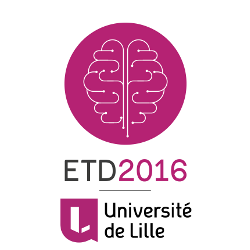The idea of intellectual genealogies is well established. The relationship between supervisor and research is taken as being similar to that between a parent and child, so successive iterations of supervisory relationships create lineages. Using a case study from primatology we argue for the importance of including information about examiners, jury members or committee members in ETD metadata.
One of the precedents for this paper was a project to trace the intellectual genealogy of primatologists by Robert Sussman and Elizabeth Kelley (2007) who generously shared their data with us as a starting point for our own research. However, our conceptual starting point differs from our predecessors in that we think that an important element of disciplinary cohesiveness has been omitted: the networks established by the processes of doctoral examination (doctoral defense in non-anglophone systems). For as well as the relationship between student and supervisor(s) another very important relationship is with their examiners and committee or jury members (especially ones not from their own institution, so called ‘externals'). Apart from the obvious point that these are the people that actually ‘sign off' the award, attesting that the candidate is worthy of a doctorate, they are also commonly a source of important references for jobs and may provide informal encouragement and information that leads to a successful career in academe. A further motivation is that the combination of supervisors and examiners ‘producing' doctorate-holding ‘children' is a clear parallel to bilaterality of kinship which holds of biological genetics and many kinship systems round the world as studied by anthropologists ever since the pioneering work of Morgan in the nineteenth century (see eg 1871). If we are to take the kinship metaphor seriously then we should acknowledge that previous studies have been unilineal despite kinship being a bilateral phenomenon. If supervision is a nurturing relationship so supervisor student relations may be likened to mother-child relations then the relationship between examiner and student might be analogous to the father and child relationship. They provide a hitherto unanalyzed (unvoiced/ unspoken/ unrecorded) social network, and as we demonstrate, an important one. Examining unilineal networks can be misleading.
On the author:
David Zeitlyn is a social anthropologist who works in Cameroon with Mambila people. His work on divination as a technology of choice making has led to a research interest in other technologies of choice making such as library catalogues. The work reported here comes from a collaboration with Symplectic about non-bibliometric representations of academic activity and marks of esteem.
David Zeitlyn is Professor of Social Anthropology (research) at the Institute of Social and Cultural Anthropology, School of Anthropology and Museum Ethnography, 51 Banbury Road, Oxford, OX2 6PF, UK.
http://www.isca.ox.ac.uk/about-us/staff/academic/prof-david-zeitlyn/
http://www.mambila.info/ The Virtual Institute of Mambila Studies
http://users.ox.ac.uk/~wolf2728/
Oct 2015 open access paper 'Looking Forward, Looking Back' now online.
Read it at http://www.tandfonline.com/doi/full/10.1080/02757206.2015.1076813
Book written with Roger Just: Excursions in Realist Anthropology. A Merological Approach
Late 2014 ISBN-13: 978-1-4438-6403-9 ISBN-10: 1-4438-6403-X
Sample at http://www.cambridgescholars.com/excursions-in-realist-anthropology
My 5 "unique" identifiers:
Google Scholar: http://scholar.google.com/citations?user=lYK4auAAAAAJæ
ORCID 0000-0001-5853-7351; Scopus 6602478625; ISNI: 0000 0001 2433 0782; VIAF ID: 2223536

 PDF version
PDF version
